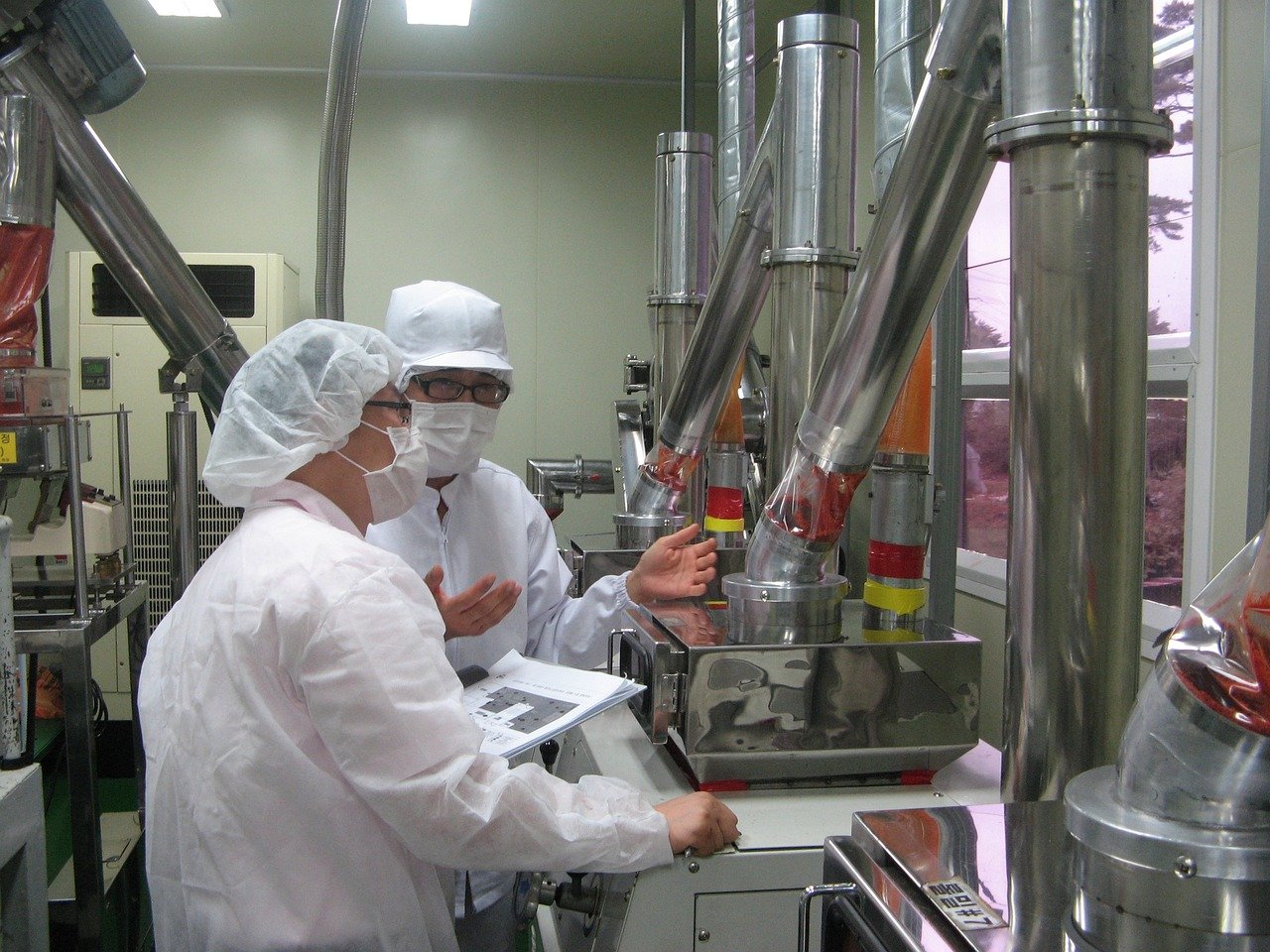Discover the alarming connection between the rise in chronic diseases in America and the overconsumption of processed foods.

The Impact of Processed Foods on Health
Processed foods have become a staple in the American diet, but their impact on health is concerning. These foods are typically high in calories, unhealthy fats, sugar, and sodium. They often lack essential nutrients, such as fiber, vitamins, and minerals. The excessive consumption of processed foods can lead to weight gain, obesity, and various chronic diseases.
One of the major concerns with processed foods is their effect on heart health. Many processed foods are high in trans fats and saturated fats, which can raise cholesterol levels and increase the risk of heart disease. These foods also tend to be high in sodium, which can contribute to high blood pressure and cardiovascular problems.
Moreover, the lack of fiber in processed foods can negatively impact digestion and increase the risk of gastrointestinal issues, such as constipation. Additionally, processed foods often contain artificial additives, preservatives, and colorings, which may have adverse effects on overall health and wellbeing.
Hidden Dangers of Processed Foods

While processed foods may seem convenient and tasty, they often hide hidden dangers that can harm our health. One of these dangers is the high sugar content in many processed foods. Excessive sugar consumption has been linked to various health problems, including obesity, type 2 diabetes, and heart disease. Processed foods, such as sugary cereals, sodas, and desserts, can contribute to a significant intake of added sugars, which can have long-term negative effects on health.
Another hidden danger of processed foods is the presence of artificial ingredients. These include artificial sweeteners, flavors, and preservatives. While these additives may enhance the taste, texture, and appearance of processed foods, they can have detrimental effects on our health. Some artificial sweeteners have been associated with increased cravings for sugary foods and may even disrupt the body’s natural ability to regulate blood sugar levels.
Furthermore, processed foods often undergo various processing methods, such as high-temperature cooking and hydrogenation, which can create harmful compounds like acrylamide and trans fats. These compounds have been linked to an increased risk of cancer, inflammation, and other chronic diseases.
Link Between Processed Food Consumption and Chronic Diseases
Research has shown a strong link between the consumption of processed foods and the development of chronic diseases. One study published in the Journal of the American Medical Association found that a higher intake of ultra-processed foods was associated with an increased risk of cardiovascular disease and premature death. Another study conducted by the National Institutes of Health discovered that a diet high in processed foods was associated with a higher risk of developing type 2 diabetes.
The high levels of unhealthy fats, added sugars, and sodium in processed foods contribute to weight gain and obesity, which are major risk factors for chronic diseases such as heart disease, diabetes, and certain types of cancer. Additionally, the lack of essential nutrients in processed foods can lead to nutrient deficiencies and weaken the immune system, making individuals more susceptible to infections and other health issues.
Furthermore, the excessive consumption of processed foods often leads to a sedentary lifestyle and poor dietary habits. These factors, along with the negative impact of processed foods on overall health, create a vicious cycle that increases the risk of chronic diseases.
Role of Added Sugars and Artificial Ingredients
Added sugars and artificial ingredients play a significant role in the negative health effects of processed foods. The high sugar content in processed foods can lead to weight gain, insulin resistance, and an increased risk of developing type 2 diabetes. Moreover, excessive sugar consumption has been linked to inflammation, which is a common underlying factor in many chronic diseases.
Artificial ingredients, such as artificial sweeteners and flavors, can have adverse effects on health. Some studies suggest that artificial sweeteners may disrupt the gut microbiota, leading to metabolic dysregulation and an increased risk of obesity. Additionally, artificial flavors and preservatives may trigger allergic reactions and have been linked to hyperactivity in children.
It is important to be mindful of the presence of added sugars and artificial ingredients in processed foods and make healthier choices by opting for whole, unprocessed foods whenever possible.
Tips for Reducing Processed Food Intake
Reducing the consumption of processed foods can have a significant impact on overall health and help prevent chronic diseases. Here are some tips to help you reduce your intake of processed foods:
– Choose whole, unprocessed foods: Opt for fresh fruits, vegetables, whole grains, lean proteins, and natural sources of fats.
– Read food labels: Pay attention to the ingredient list and avoid foods that contain added sugars, artificial ingredients, and unhealthy fats.
– Cook meals at home: By preparing meals from scratch, you have control over the ingredients and can avoid processed foods.
– Plan and prepare meals in advance: Planning your meals ahead of time can help you avoid relying on processed convenience foods when you’re busy or tired.
– Snack on healthy alternatives: Instead of reaching for processed snacks, opt for nuts, seeds, fruits, or homemade snacks.
– Limit eating out: Restaurant meals often contain hidden processed ingredients. Try to cook and eat at home more often to have better control over your food choices.
– Educate yourself: Learn about nutrition and the impact of processed foods on health. This knowledge will empower you to make informed decisions and prioritize your health.
By implementing these tips and gradually reducing your intake of processed foods, you can improve your overall well-being and reduce the risk of chronic diseases.
Why Global Organizations Avoid Discussing Artificial Foods

In the realm of nutrition and health, discussions surrounding artificial foods often seem shrouded in silence, with global organizations often sidestepping the topic altogether. Yet, as we delve deeper into the landscape of processed and synthetic foods, it becomes evident that this silence is far from benign. So, why exactly do global organizations tiptoe around the issue of artificial foods, and what implications does this avoidance
The Impact of Artificial Foods on Public Perception
Artificial foods, also known as processed or synthetic foods, have a significant impact on public perception. Many consumers are becoming increasingly concerned about the potential health risks and environmental consequences associated with these types of products. Global organizations understand that discussing artificial foods openly could lead to negative public perception and undermine their credibility.
One of the main concerns is the perception that artificial foods are not as nutritious as natural, whole foods. Consumers often associate processed foods with high levels of sugar, sodium, unhealthy fats, and artificial additives. This negative perception can lead to a decrease in trust and confidence in global organizations if they support or promote artificial foods.
Additionally, artificial foods are often associated with the decline in traditional farming practices and the loss of biodiversity. Consumers who are concerned about the environment may view global organizations as complicit in the promotion of unsustainable agricultural practices if they discuss artificial foods. Therefore, global organizations tend to avoid the topic to maintain a positive public image and avoid potential backlash.
The Rise of Processed Foods:
The modern diet has undergone a radical transformation in recent decades, marked by the exponential rise in the consumption of processed foods. These products, engineered in laboratories and factories, boast extended shelf lives, convenience, and often a tantalizing taste. However, lurking beneath their enticing facades are a plethora of artificial additives, preservatives, and flavor enhancers. From high-fructose corn syrup to hydrogenated oils, these ingredients have become staples in the Western diet, contributing to a myriad of health ailments.
The Health Implications:
The consequences of excessive consumption of processed foods are dire, with chronic diseases such as obesity, diabetes, cardiovascular disorders, and certain cancers reaching epidemic proportions. These ailments not only burden healthcare systems but also exact a profound toll on individuals and families worldwide. Despite mounting evidence linking artificial foods to adverse health outcomes, the discussion around their regulation and impact remains conspicuously absent from many global health agendas.
The Influence of Big Food:
One cannot address the issue of artificial foods without confronting the colossal influence wielded by the food industry. With deep pockets and extensive lobbying power, multinational corporations actively shape public policy, funding research and campaigns that obfuscate the link between their products and health risks. Consequently, global organizations, wary of antagonizing these influential entities, often tread cautiously when broaching the subject of artificial foods.
The Importance of Transparency:
In the face of this orchestrated silence, the need for transparency and informed discourse has never been more pressing. By engaging in open dialogue and shedding light on the detrimental effects of artificial foods, we empower individuals to make informed dietary choices and advocate for systemic change. Moreover, holding global organizations accountable for prioritizing public health over corporate interests is essential in fostering a culture of wellness and resilience.
The Way Forward:
As consumers, educators, and advocates, we possess the power to challenge the status quo and demand accountability from those entrusted with safeguarding our health. By supporting initiatives that promote access to fresh, wholesome foods, advocating for transparent labeling practices, and holding policymakers and global organizations accountable, we can catalyze a paradigm shift towards a healthier, more sustainable food system.
In conclusion, the silence surrounding artificial foods perpetuated by global organizations is not a mere oversight but a calculated omission with far-reaching consequences. It is incumbent upon us to break this silence, confront the realities of processed foods, and champion a future where health and well-being take precedence over profit margins. Only through collective action and unwavering determination can we pave the way towards a world where nutritious, wholesome foods are not just a privilege but a fundamental human right.


